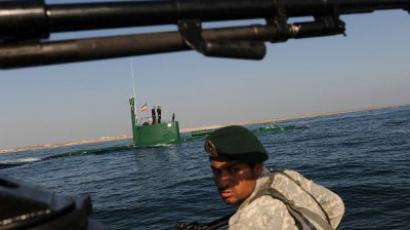Top US general in Israel to hammer out Iran strategy

US Army General Martin Dempsey is currently visiting Israel amid heightened tensions with Iran. Israel is pushing for tougher measures, and the US fears the Jewish state may be considering military action.
This is General Dempsey’s first visit to the country since he was appointed chairman of the Joint Chiefs of Staff four months ago. He is scheduled to meet with Prime Minister Benjamin Netanyahu, Defense Minister Ehud Barak, military chief of staff Lt.-Gen. Benny Gantz and President Shimon Peres. The Iranian nuclear program is expected to be a top issue on the table, and Israeli officials involved in preparing for the meetings told AP they expected Dempsey to urge restraint as the US tries to rally additional international pressure on Iran.Both the US and Israel insist Iran is building nuclear weapons – and maintain that such a program threatens both of them. However, they differ on what actions should be taken to prevent Iran from acquiring a nuclear weapon.
Same charges, different penalties
Israel may be considering military strikes on Iran – which it has previously mentioned on several occasions – saying an attack could be used if other measures failed. While the US says military force is a possible option, it would only be a last resort, after talks and sanctions. And currently, the US views its existing economic sanctions as sufficient. Washington insists on imposing sanctions on Iran’s energy sector, claiming the country finances its nuclear program with oil export revenues. US President Barack Obama implemented an oil embargo on the country in December, to which Iran responded with a number of bold statements – the chief among them a threat to block the Strait of Hormuz, a key sea route for Gulf oil tankers.The toughening Iran issue could cast a shadow on Obama's reelection prospects this year if he gets caught in the middle of an Iran-Israeli conflict. Higher tensions could bring higher oil and gasoline prices, angering American consumers, while Republicans push the President to escalate action against Iran.
Will the guns, if fired, hit their target?
Earlier in the week, Israel said it was moving a large-scale joint military exercise with US troops previously scheduled for spring to some time later this year. However, even if Israel resorts to an aerial bombardment or missile strike – which the US fears it could – the latest news from Iran show big doubts over whether such an attack could really damage the alleged nukes.Reports say Iran is moving some of its uranium enrichment facilities deeper underground, making them harder to reach in case of an attack.
‘US punishes Iranian people for taking control of their oil’
Israeli Prime Minister Benjamin Netanyahu is calling for the intensification of sanctions against Iran over its alleged nuclear weapons program, saying an embargo on Iranian oil must be put in place. But Caleb Maupin of the International Action Center, an anti-war group, say such measures "are just part of a continued repression of the Iranian people.”
He notes that through sanctions and the proposed embargo, the US is punishing the people of Iran “for the fact that in 1979 they rose up, they overthrew a US-backed dictator, and took the oil for themselves.” The US has never forgiven them – and continues to seek to isolate and threaten Iran as a result, the activist believes.
“That’s why I’m excited about February 4 – a national day of action … when all throughout the US are going to take to the streets against these sanctions, these assassinations of nuclear scientists and these threats of war, because the Iranian people have the right to control their oil resources.” That’s what these threats of war and continuing isolation are really about, Maupin asserts, adding that the fear of nuclear weapons is simply a red herring.














